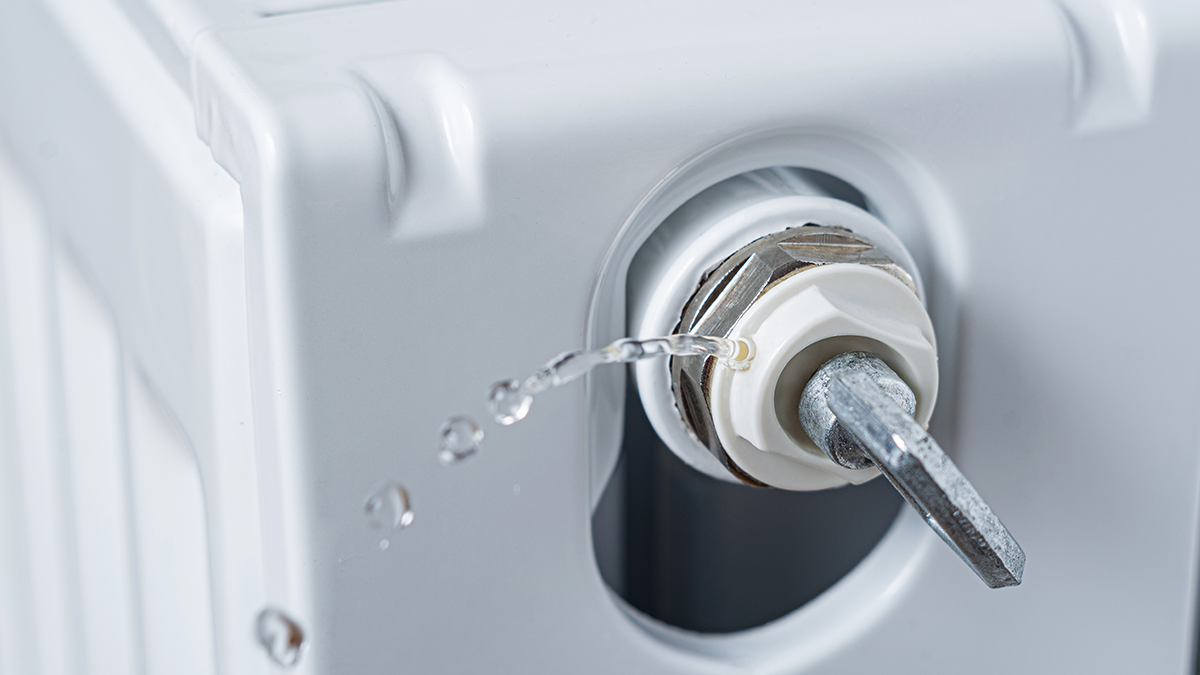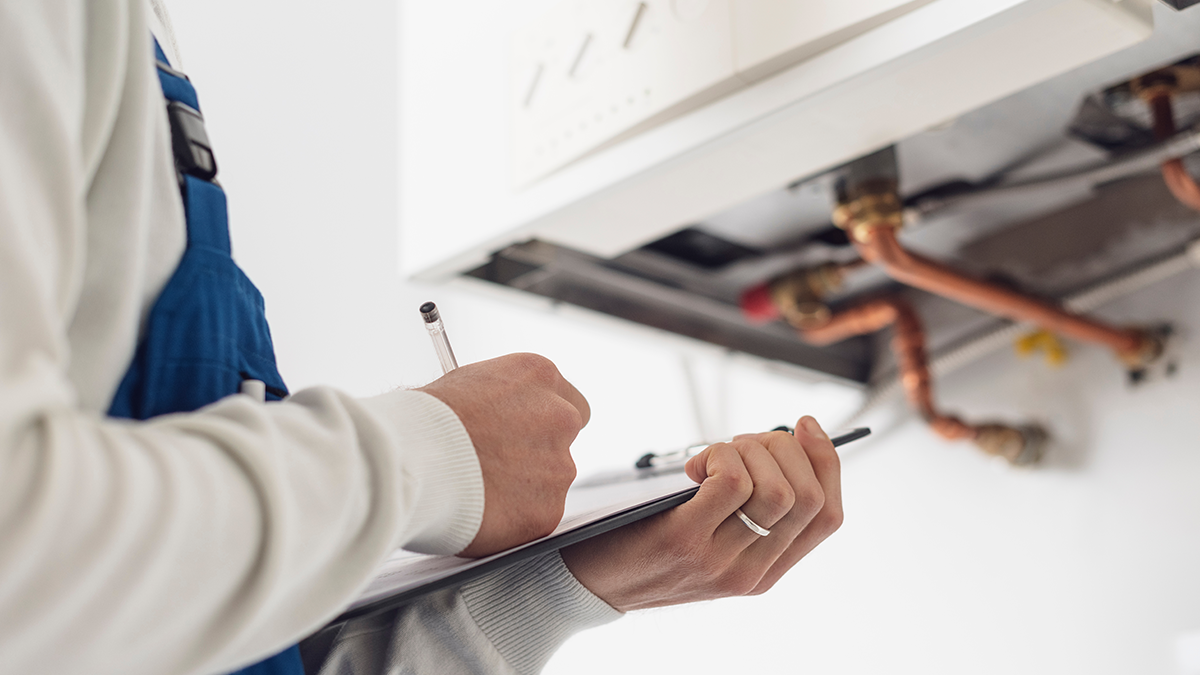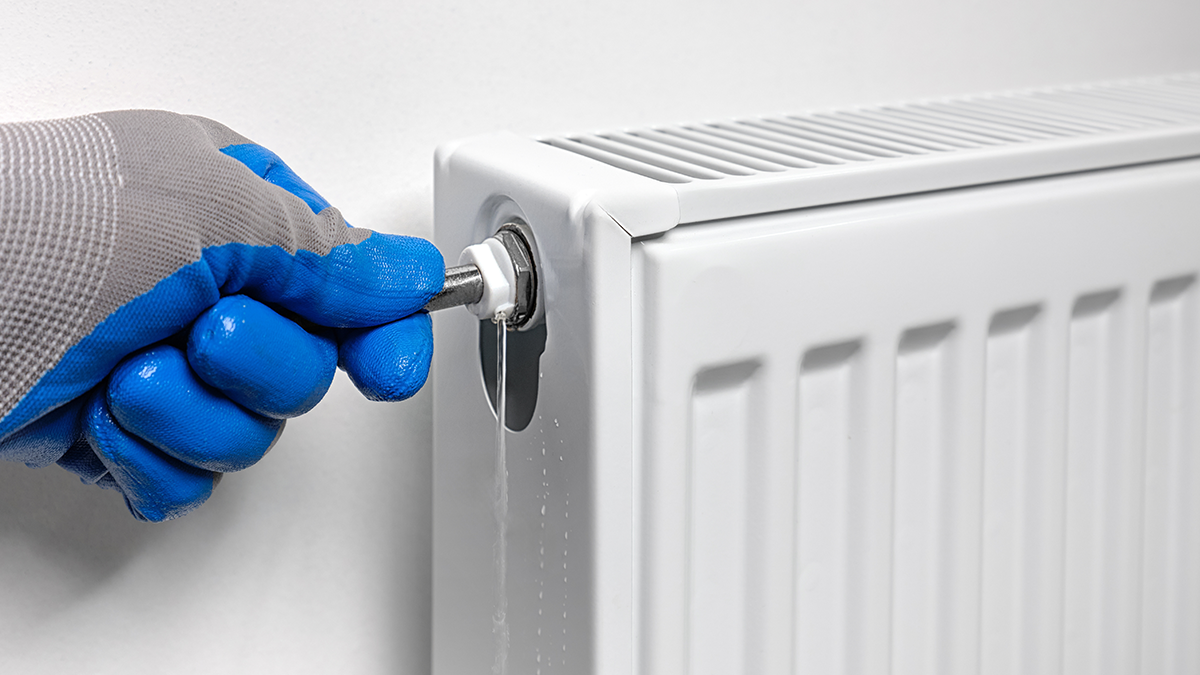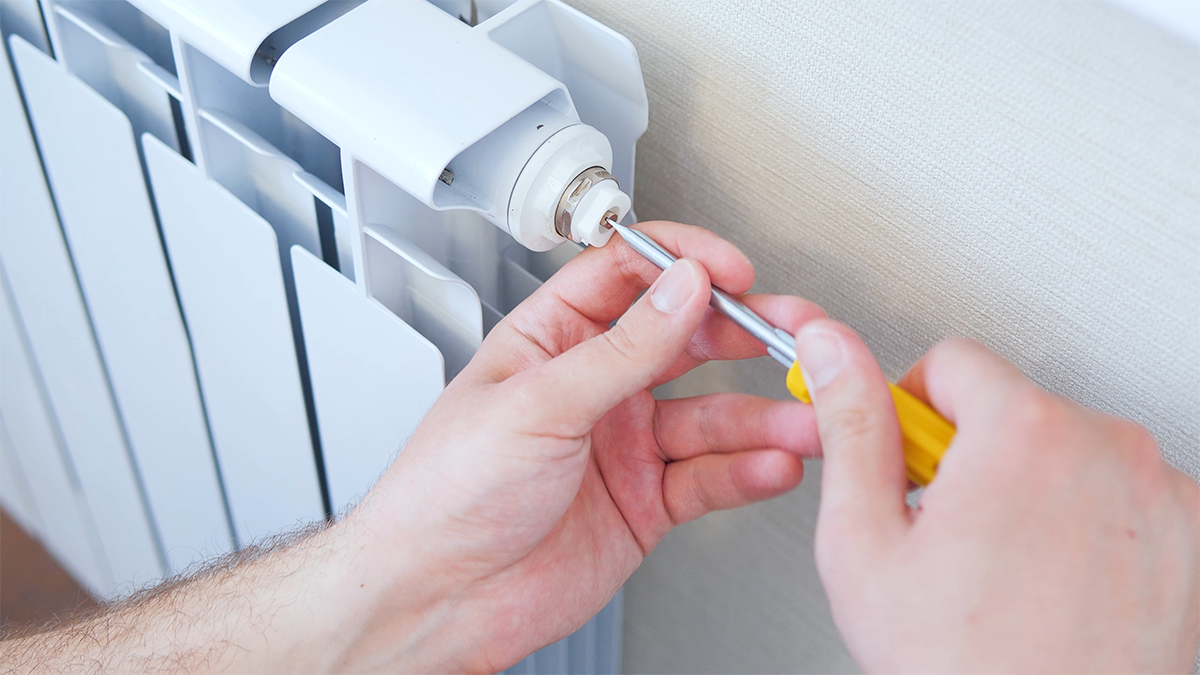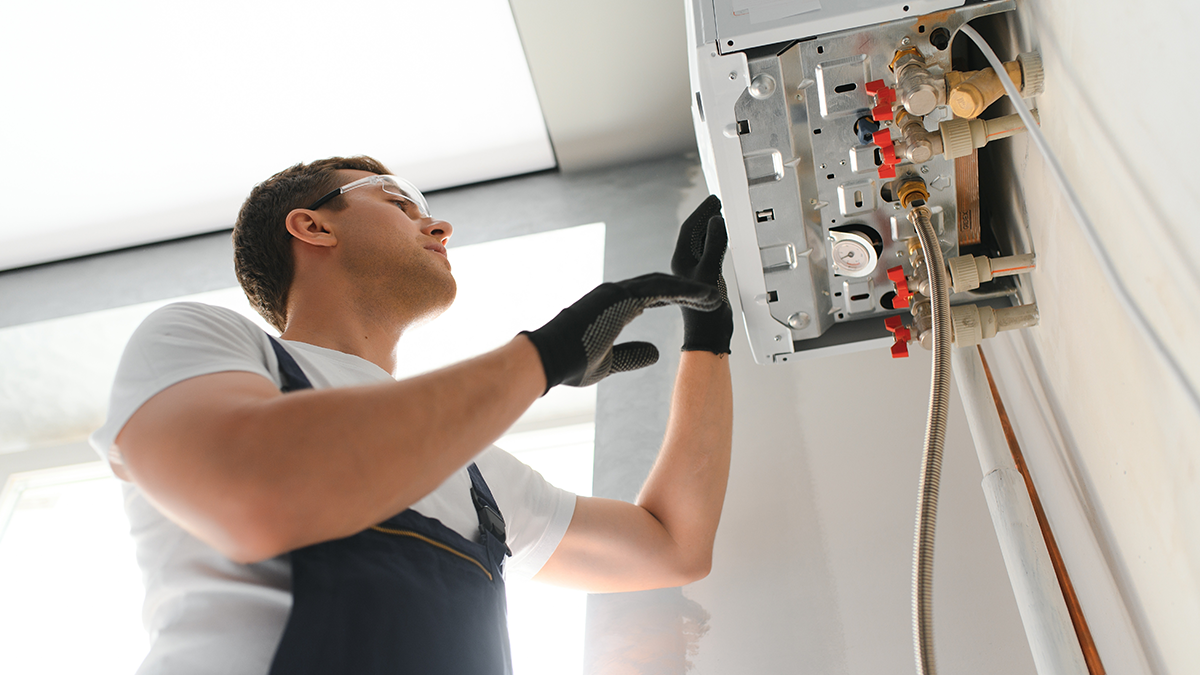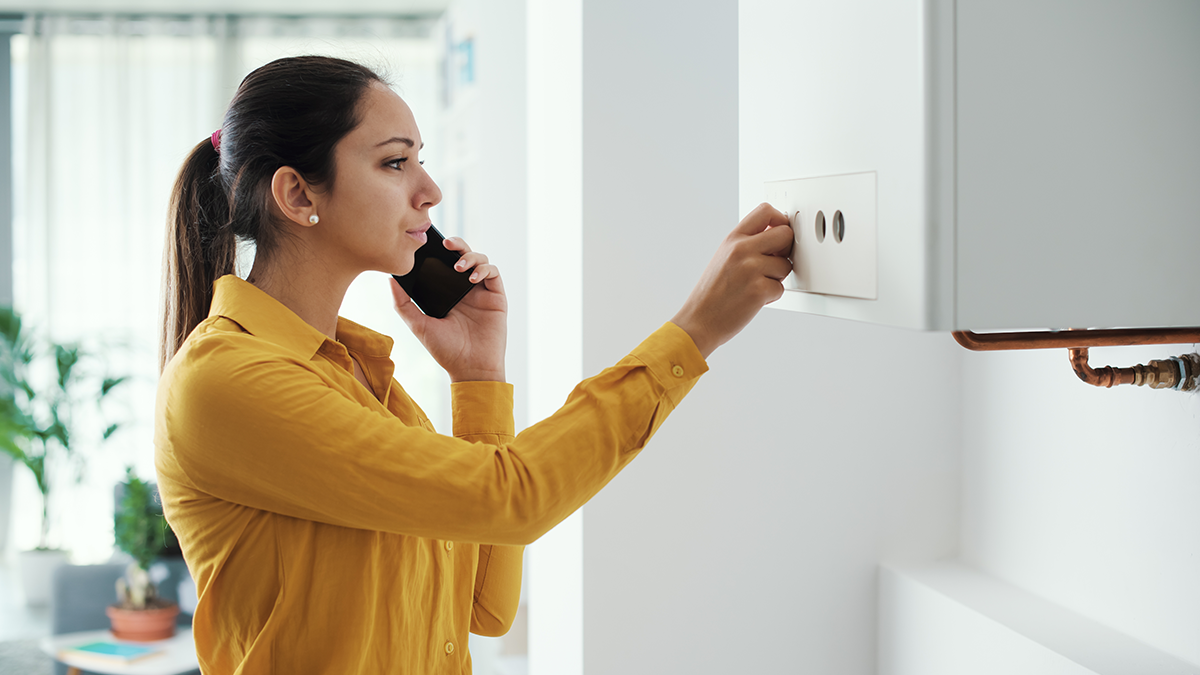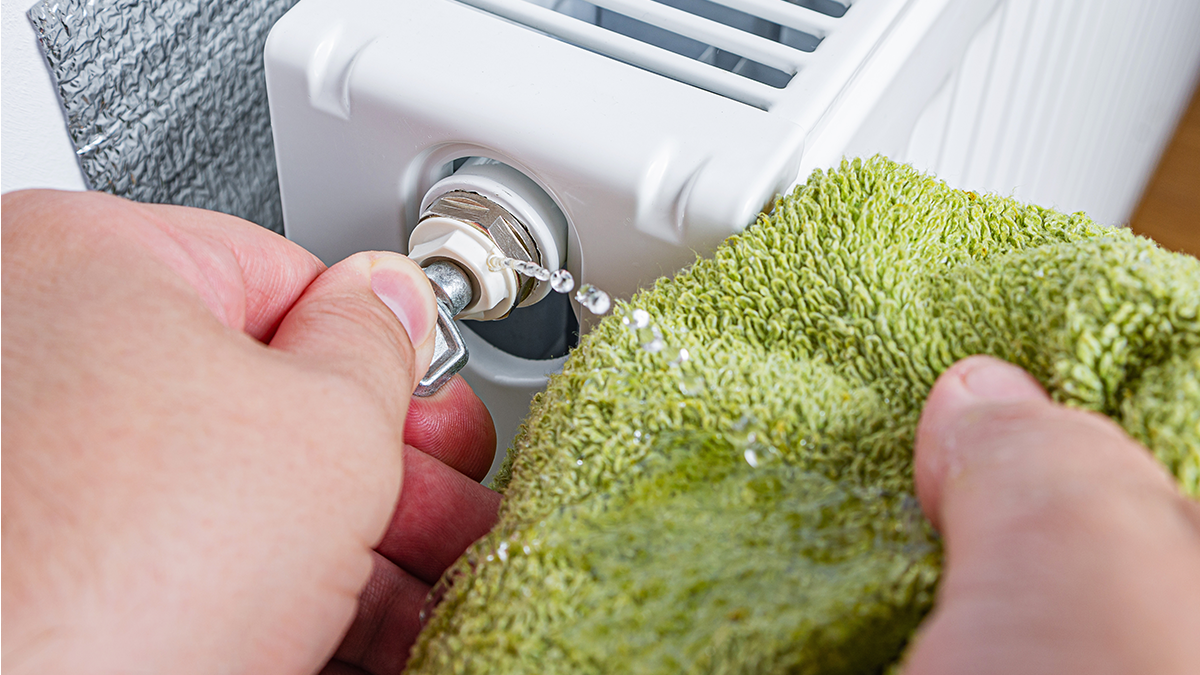How to Bleed a Radiator Without a Key
Lost your radiator key? Don’t panic – there are a few alternatives that might work, depending on what type of valve you’ve got.
For square valves:
- A small adjustable spanner or pliers can work in a pinch
- Some people have success with a large flat-head screwdriver
- The end of a metal ruler sometimes fits
For hexagonal valves:
- An Allen key of the right size
- A small socket from a socket set
- Needle-nose pliers (be very careful not to damage the valve)
Important safety note: These alternatives are for emergencies only. Improvised tools can easily damage the valve or cause you to lose control, leading to flooding or injury. It’s much better to nip out and buy a proper radiator key – they’re cheap and you’ll probably need it again anyway.
We’ve seen too many cases where someone’s tried to be clever with a pair of mole grips and ended up with a valve that won’t close properly. Trust us, the £2 for a radiator key is money well spent.
What to Do After Bleeding Your Radiators
Job’s not quite done yet! After you’ve bled all your radiators, there are a couple of important things to check:
Check your boiler pressure: Bleeding radiators reduces the water volume in your system, which usually means your boiler pressure will drop. Most boilers should run at around 1-1.5 bar when cold. If the pressure has dropped below 1 bar, you’ll need to top it up using your boiler’s filling loop.
Test your heating: Turn the heating back on and give it 15-20 minutes to warm up properly. Check each radiator you’ve bled to make sure they’re now heating evenly from top to bottom.
Keep an eye out for leaks: While you’re checking the radiators, have a quick look for any drips from the bleed valves. If you spot any leaks, try tightening the valve very slightly. If it still leaks, you might need a new valve.
When Bleeding Doesn’t Fix the Problem
Sometimes bleeding your radiators doesn’t solve the problem, and that’s when you might need professional help. Here are some signs that there’s more going on than just trapped air:
- Radiators are still cold after bleeding
- You’re having to bleed the same radiators repeatedly
- Your boiler pressure keeps dropping even after topping up
- Some radiators stay completely cold while others work fine
- Strange noises continue after bleeding
These symptoms often indicate issues like:
- Sludge build-up in the system
- Faulty circulation pumps
- Balancing problems
- Leaks somewhere in the system
According to
Citizens Advice, heating system problems account for a significant portion of household emergency repairs. Therefore, it is advisable to get them fixed as soon as possible to avoid the need for portable electric heaters, which are more expensive.
The Bigger Picture: System Maintenance
Bleeding radiators is just one part of keeping your heating system running efficiently. Regular maintenance can prevent bigger problems down the line and keep your energy bills under control.
Annual boiler services are essential for safety and efficiency. A qualified heating engineer will check all the important components, clean anything that needs attention, and spot potential problems before they become expensive emergencies.
System flushing might be needed if your radiators keep getting air locks or if you’re constantly having to bleed them. This involves cleaning out the sludge and debris that can build up in your heating system over time – a job that requires a qualified professional, such as our
plumbers in Milton Keynes.
Balancing your radiators ensures that hot water flows evenly around your heating system, so all rooms heat up at the same rate. The
Department for Business, Energy & Industrial Strategy explains that improving the efficiency of our homes could reduce our heating bills by around 20% and decrease our dependency on imported gas.
When to Call the Professionals
While bleeding radiators is definitely a DIY job that most people can handle, there are times when you should call in a qualified heating engineer:
- If you’re not comfortable doing it yourself
- If the bleed valves are damaged or won’t turn
- If bleeding doesn’t solve the problem
- If you notice any gas smells around your boiler
- If your boiler pressure keeps dropping
- If you’re having to bleed radiators very frequently
According to
Which? if your whole house feels as though it’s not heating up correctly, you might have an unbalanced heating system. This is a larger issue that requires a plumber or heating engineer. At GasLine, we’re always happy to help homeowners with heating problems, whether it’s a simple radiator bleed or something more complex. All our engineers are Gas Safe registered and experienced in dealing with all types of heating systems.
Frequently Asked Questions
Q: What happens if I don’t bleed my radiators? A: Your heating system will become less efficient over time, your energy bills will increase, and some rooms might stay cold even when the heating is on full blast.
Q: Can I bleed radiators myself, or do I need a professional? A: Bleeding radiators is definitely a DIY job that most homeowners can handle safely. However, if you’re not comfortable doing it or encounter problems, it’s always best to call a qualified heating engineer.
Q: How long does it take to bleed a radiator? A: Each radiator usually takes just 2-3 minutes to bleed properly. For a whole house, you’re looking at maybe 20-30 minutes maximum.
Q: Will bleeding radiators reduce my boiler pressure? A: Yes, it usually will. You’ll need to check your boiler pressure gauge after bleeding and top up if it’s dropped below 1 bar.
Q: Is it normal for black water to come out when bleeding radiators? A: Yes, this is completely normal. The water in your heating system often looks a bit grimy – it’s just been sitting in your radiators and pipes for ages!
Q: Should I bleed all radiators or just the cold ones? A: Focus on the ones showing symptoms (cold spots, strange noises), but it doesn’t hurt to check all of them while you’re at it.
The Bottom Line
Bleeding radiators is one of those simple maintenance jobs that can make a real difference to your comfort and your energy bills. It’s not complicated, doesn’t take long, and can save you money by making your heating system work more efficiently.
The key things to remember: always let your system cool down first, have the right tools for the job, and don’t be afraid to call for help if things don’t go to plan. A properly maintained heating system will keep your home warm and comfortable while keeping those energy bills under control.
Regular radiator bleeding is just good housekeeping – like hoovering the carpets or cleaning the windows. Do it regularly, and you’ll avoid bigger problems down the line.
If you’re not confident about bleeding your radiators yourself, or if you discover problems that need professional attention, don’t hesitate to get in touch. Our friendly team at GasLine is always here to help with honest advice and reliable service – from
gas and
air conditioning, to
heat pumps and
plumbing in Milton Keynes.
